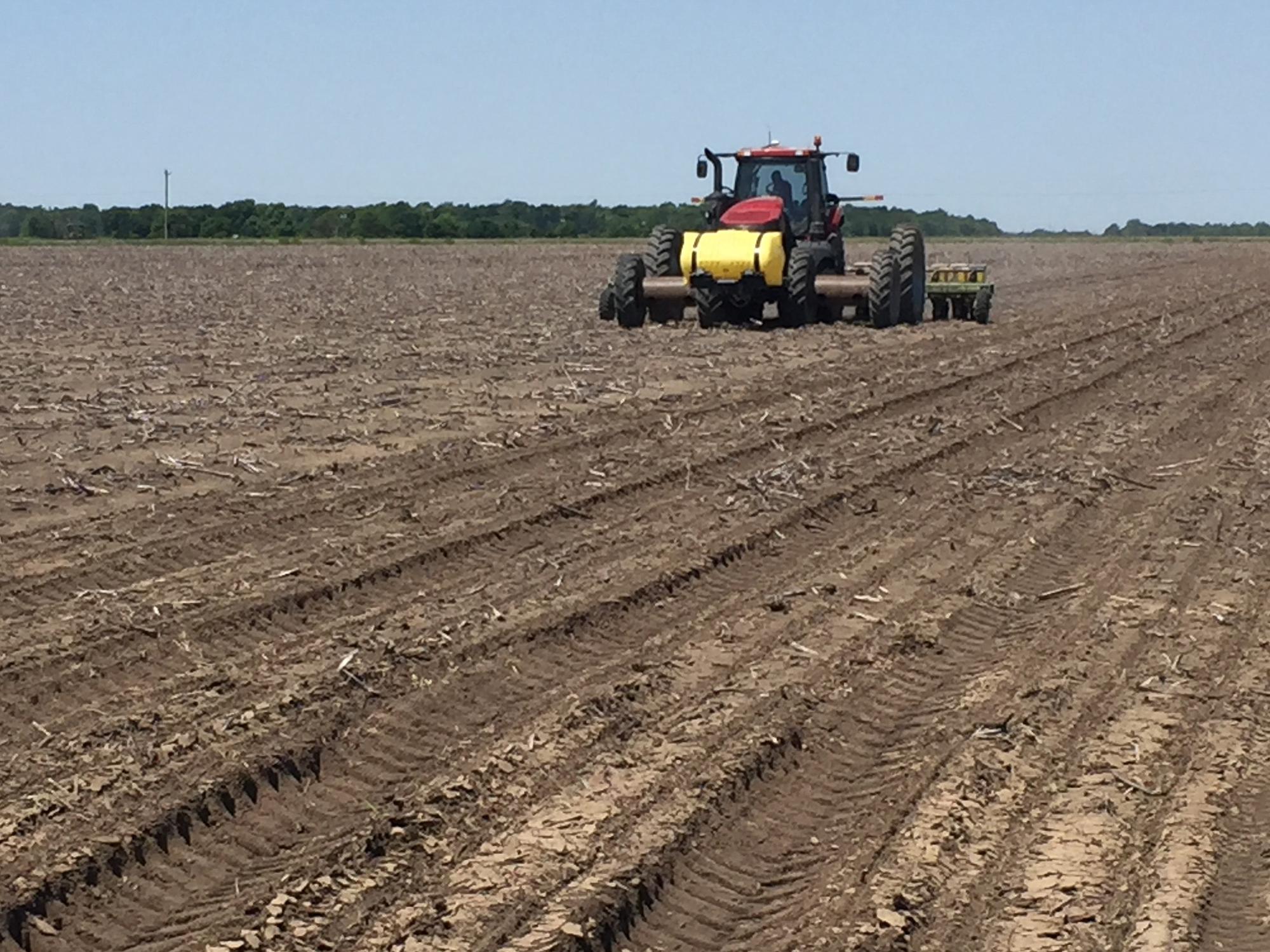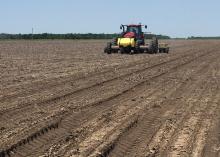Information Possibly Outdated
The information presented on this page was originally released on May 13, 2016. It may not be outdated, but please search our site for more current information. If you plan to quote or reference this information in a publication, please check with the Extension specialist or author before proceeding.
Soybean growers race to plant 2016 crop
STARKVILLE, Miss. -- Spring rains created their typical obstacle course for Mississippi soybean growers trying to get fields planted as soon as possible.
“Growers are covering a lot of ground this week (May 8-13) trying to plant before the next rain,” said Trent Irby, soybean specialist with the Mississippi State University Extension Service. “Frequent rains have made the planting season a challenge. Growers are planting all they can between these rains. Even with these challenges, we are only slightly behind where we were last year in terms of planting progress.”
Mississippi farmers harvested 2.27 million acres of soybeans in 2015, but they are forecast to plant only 2 million acres this year. Irby attributed the acreage reduction to market prices.
“We typically plant more acres than initially intended if early spring weather prevents growers from planting corn,” he said. “While April is the optimal soybean planting time, we can still make good yields if planting is delayed, so it’s not unusual to continue planting through May and even into June, in some cases.”
Irby said some areas of the state have experienced more rainfall recently than other areas, causing further planting delays and even some replant situations.
“Warmer temperatures mean everything will be growing quickly, including weeds,” Irby said. “Continuing to get the crop established and keeping up with herbicide applications are the primary focuses right now. Both are a challenge given the weather conditions we have experienced.”
Charlie Stokes, an Extension agent based in Monroe County, said he is planting test plots as quickly as possible when conditions allow, just like area farmers. 2016 makes the third consecutive spring in which rains have complicated timely planting.
“We would have preferred to have started planting soybeans in April, but we are not too late now,” Stokes said. “It’s not unusual for farmers to plant a later maturing variety in May. Yields were respectable the last couple of years when we had late starts. Our concern is that our luck will eventually run out.”
Extension agricultural economist Brian Williams said recent reports from the U.S. Department of Agriculture have bolstered soybean prices, which are running around $10.76 per bushel -- slightly higher than a year ago. The report indicated tight supplies and strong demand.
“The report suggested that supplies are 95 million bushels lower than last year and 100 million bushels lower than expected,” Williams said. “Additionally, demand for soybean crush (meal and oil) is up by 35 million bushels, and exports are up by 145 million bushels. When you combine this with a reduction in acreage nationally, the forecast for the soybean market is very favorable.”
MSU agricultural economists estimated the state’s 2015 soybean value of production at $1.03 billion, third among the state’s agricultural commodities, behind poultry at $3.2 billion and forestry at $1.8 billion.




